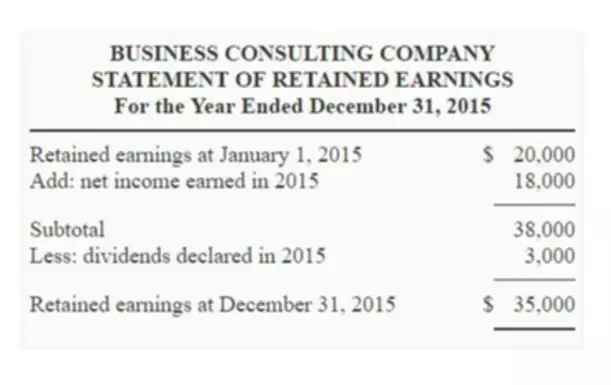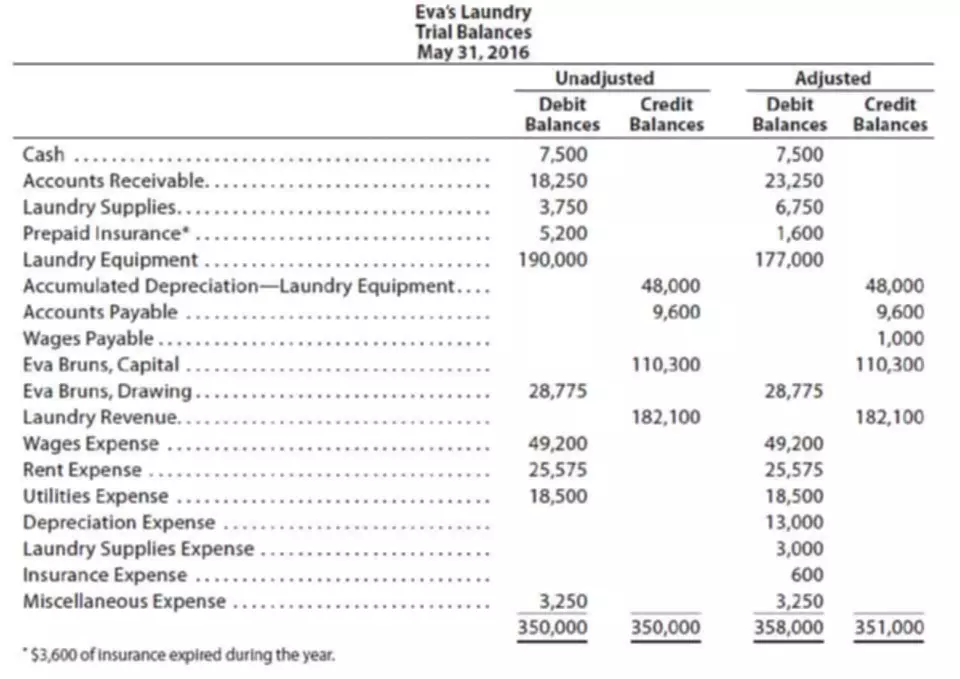Content

Bankrate.com is an independent, advertising-supported publisher and comparison service. We are compensated in exchange for placement of sponsored products and, services, or by you clicking on certain links posted on our site. Therefore, this compensation may impact how, where and in what order products appear within listing categories, except where prohibited by law for our mortgage, home equity and other home lending products. Other factors, such as our own proprietary website rules and whether a product is offered in your area or at your self-selected credit score range can also impact how and where products appear on this site. While we strive to provide a wide range offers, Bankrate does not include information about every financial or credit product or service. Most small businesses are set up as S corporations, LLCs not treated as corporations, partnerships, and sole proprietorships, meaning their business taxes in Oregon, if applicable at all, are minimal.
- Certain eligible government, nonprofit, and religious entities may also fall under an exemption.
- Caring for an infant might cost around $16,900, while caring for a four-year-old might cost around $950 per month or $11,500.
- The Clatsop County Department of Assessment and Taxation collects taxes on behalf of 66 separate taxing districts (see where your tax dollar goes).
- This minimum tax ranges from $150 for sales under $500,000 to $100,000 for sales in excess of $100 million.
- Bankrate.com is an independent, advertising-supported publisher and comparison service.
- But caring for two young children in California can take up to 42% of the median income.
Most U.S. homeowners have to pay these fees, usually on a monthly basis, in combination with their mortgage payments. If you pay off your loan, you receive a bill for the tax from local government occasionally during the year. For LLC’s that file as corporations (S-corps or C-corps) and don’t do business in Oregon but have income from the state, will pay the state’s corporate income tax rates of either 6.60% or 7.60%. If your corporation’s gross taxable income is less than $250,000, you pay the 6.60% tax rate, and any earnings above are taxed at the 7.60% rate. The first thing to know about the state of Oregon’s tax system is that it includes no sales tax.
Ranking Property Taxes on the 2023 State Business Tax Climate Index
Many parts of Oregon, in particular the Portland area, feature growing, thriving, educated populations, along with several reputable universities that turn out new classes of qualified employees each year. Alaska, Florida, Nevada, South Dakota, Tennessee, Texas, and Wyoming are the only states without a state income tax. In New Hampshire, only interest and dividends are taxed, whereas Washington solely taxes capital gains. Oregon does not collect sales taxes of any kind, at the state or local level. If you’re a homeowner, you can claim the property tax deduction if you’re eligible and you know how.
When you add up all state and local taxes, Oregon’s tax structure is actually regressive – meaning low-income Oregonians pay a higher share of their income in taxes than the richest Oregonians. S corporations operate like C corporations in that they set up separate entities that confer to business owners and their personal assets a host of legal and financial protections. The distinction between the two is the S status files with the Internal Revenue Service (IRS), which allows income derived from sales to pass through the corporation to its owners. Because the owners then pay personal income tax on this money, the federal government does not charge the business a corporate tax, considering this to be double taxation.
Compare Your After-Tax Income To Other States
At age 73, you are required by the IRS to start taking required minimum distributions from tax-deferred retirement accounts. But once you hit age 70 1/2, you can have some or all of your required minimum distributions sent directly to a charity of your choice. This move will still count as a required minimum distribution, but the amount isn’t added to your taxable income.
- If you’re ready to find an advisor who can help you achieve your financial goals, get started now.
- This includes a “final demand” letter sent to the taxpayer’s last known address making it clear that the account may be referred to a collection agency.
- In Oregon, registered domestic partners, or RDPs, are subject to the same tax statutes and regulations that apply to married filers.
- Food costs depend on a number of factors including household size, location, and what’s for dinner.
- For couples filing taxes together, the 8.75 percent tax rate kicks in at $18,400 of taxable income (what you’re left with after all tax subtractions and deductions, but before tax credits).
- Oregon has an estate tax for estates valued at $1 million or more.
Overall, Oregon transportation costs tend to be more affordable than in California. For households with children, child care is another important expense to consider. California is actually the 3rd most expensive state in the country in terms of child care. Caring for an infant might cost around $16,900, while caring for a four-year-old might cost around $950 per month or $11,500.
Federal Fuel Excise Taxes
You may file and pay the Arts Tax for any adult, even if they don’t live with you. The billing email address and home address will copy to all taxfilers but you can change this information for any (or all) taxfilers. You may file for another adult, your spouse, a parent, oregon income tax rate or an adult child. You will then be able to pay for everyone in a single payment transaction. If you live outside of Portland you can also file for someone who does live in Portland. Oregon property taxes are assessed for the July 1st to June 30th fiscal year.
- In the majority of partnerships and sole proprietorships, the business owner receives their share of income from the business directly, and it does not pass through the company.
- The median household income statewide is around $81,855 according to FRED, comparable to California.
- Interestingly, the exact rate for energy is 30 cents per kilowatt hour, which is 64% higher than the national average.
- Find more information on industry taxes on the Oregon Business Taxes page.
- Bankrate follows a strict
editorial policy, so you can trust that our content is honest and accurate. - Bankrate follows a strict editorial policy, so you can trust that we’re putting your interests first.
- Our editors and reporters thoroughly fact-check editorial content to ensure the information you’re reading is accurate.
Oregonians typically spend about $145 on utilities each month, which is 15% lower than the national average, and 33% lower than their next-state neighbors. And over the course of 25 years, Oregonians can expect to pay just 40% of what Californians pay. The cost of utilities is a significant expense that homeowners need to consider. Both California and Oregon are engaged in legislative and cultural pushes toward green energy.
With the legalization of recreational marijuana, Oregon collects taxes on pot production and its sales. We’re transparent about how we are able to bring quality content, competitive rates, and useful tools to you by explaining how we make money. Our experts have been helping you master your money for over four decades. We continually strive to provide consumers with the expert advice and tools needed to succeed throughout life’s financial journey. Our mission is to provide readers with accurate and unbiased information, and we have editorial standards in place to ensure that happens.
Depending on your industry, you may be liable for certain other taxes and duties. For example, if you sell gasoline, you may need to pay a tax on any fuel you sell. Likewise, if you import or export goods, you may need to pay certain duties.
Note that these are marginal rates, so they only apply to the portion of the estate falling within that bracket. View how much tax you may pay in other states based on the filing status and state entered above. If you’re a physician who’s licensed in the state of Oregon and provides care to at least eight residents at an Oregon Veterans Home (OVH), you can qualify for a tax credit that’s worth up to $5,000. You can deduct the amount of your expenses that exceeds 7.5% of your federal adjusted gross income (AGI). However well-intended they may be, sales tax holidays remain the same as they always have been—ineffective and inefficient.
This includes your tax-free amount, plus business expenses and other deductions for areas such as healthcare and some retirement plans. Similar to the franchise tax in other states, the Oregon Corporate Excise Tax (CET) is levied for the privilege of doing business in the state. The tax is measured by net income, and companies filing for the excise tax are subject to a minimum tax.This tax applies to LLCs that elect to be treated as corporations, and is paid to the Oregon Department of Revenue. You pay your CET on top of your corporate income tax only if you are based in Oregon and doing business in the state. If you’re just a foreign LLC doing business in the state without a physical location in the state, you only have to pay the corporate excise tax. If your LLC brought in $1 million or less, you’re taxed at a 6.6% rate—anything above $1 million is taxed at the 7.6% rate.
To apply to have your LLC taxed as an S-corp, you will file Form 2553 with the IRS. Note that your LLC must meet the IRS S-corp requirements, like having no more than 100 shareholders. Before making a big decision like changing your LLC’s tax status, consult with a CPA to see if the move will benefit your business. Oregon also collects a fiduciary income tax on the income of all trusts and estates.

